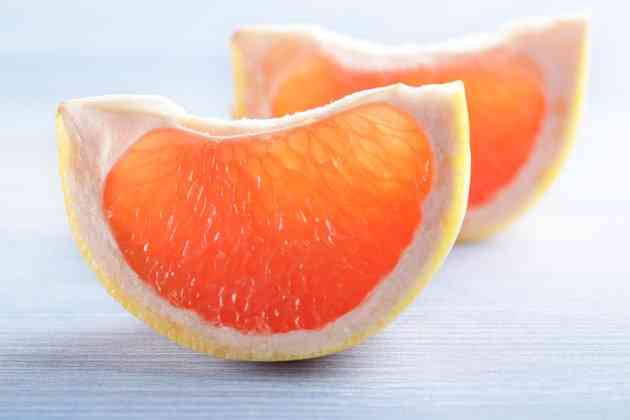Food That Is Good for Eczema

Eczema is a chronic condition characterized by flaky, dry and itchy skin. Your symptoms may come and go episodically and worsen in response to stress, exposure to water or allergens and temperature changes. In addition to not scratching itchy areas, avoiding hot baths and showers and topical ointments, a nutritious, balanced diet may help improve your symptoms. For best results, seek specified guidance from your doctor or dietitian before making significant dietary changes.

Fruits and Vegetables
Fruits and vegetables are prime suppliers of antioxidants -- nutrients that help your body's ability to defend itself from infections and disease. Vitamin C, an antioxidant prevalent in colorful fruits and vegetables, may also serve as an antihistamine and reduce eczema symptoms, according to the University of Maryland Medical Center. Fruits and vegetables particularly rich in vitamin C include strawberries, other berries, citrus fruits, cantaloupe, kiwi, tomatoes, baked potatoes -- with skin, sweet potatoes, leafy greens, broccoli, Brussels sprouts and red bell peppers.
Lean Meats
Lean meats provide rich amounts of protein and nutrients, such as zinc, B vitamins and iron. Foods rich in protein and zinc are particularly important for eczema sufferers, according to Kathleen Waterford, author of "The Skin Cure Diet: Heal Eczema from Inside Out," because they promote strong immune system strength and provide healthy alternatives to inflammatory protein sources, such as high-fat meats. For best eczema-reducing results, replace fatty red and processed meats with skinless chicken and turkey breasts, extra-lean ground beef and lean chuck roast, duck, lamb and pork most often. Use lower-fat cooking techniques, such as baking and broiling, over frying, for additional benefits.
Plant-based Oils
Plant-based oils provide unsaturated fats, which promote nutrient absorption, positive brain function and heart health. Waterford recommends replacing butter and margarine with extra-virgin olive oil, sesame oil and flaxseed oil for improved eczema symptoms. Additional plant-based oil varieties include safflower oil, sunflower oil, corn oil, soybean oil and canola oil. Flaxseed and canola oils also contain omega-3 fatty acids, which may help reduce inflammation.
Fatty Fish
Fatty fish, like canola and flaxseed oil, provide rich amounts of omega-3 fatty acids. Since fish oil is a particularly rich source of omega-3 fats, the University of Maryland Medical Center recommends regular consumption for eczema sufferers. Fish particularly high in omega-3 fats include salmon, lake trout, albacore tuna, herring, cod, sole, mackerel, sardines, halibut and flounder. Fatty fish are also exceptional sources of zinc.
Yogurt
In addition to providing valuable amounts of calcium, vitamin D and protein, yogurt provides probiotics -- healthy, or "friendly," bacteria that promote digestive health. Though additional research is needed, according to the University of Maryland Medical Center, probiotics may help reduce children's allergy symptoms, enhance your immune system function and reduce eczema symptoms. Consume yogurt that contains "live active cultures" most often for maximum probiotic benefits.




